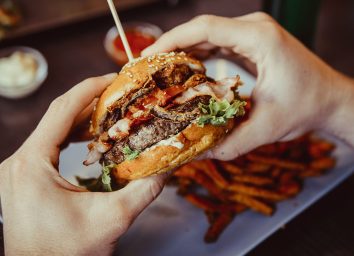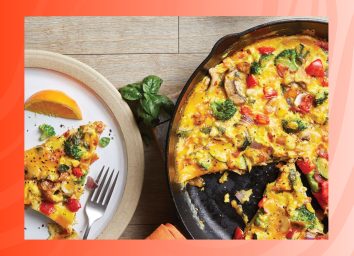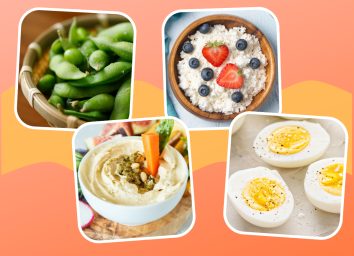The Largest Study on Food-Induced Inflammation Just Revealed This Surprising Effect
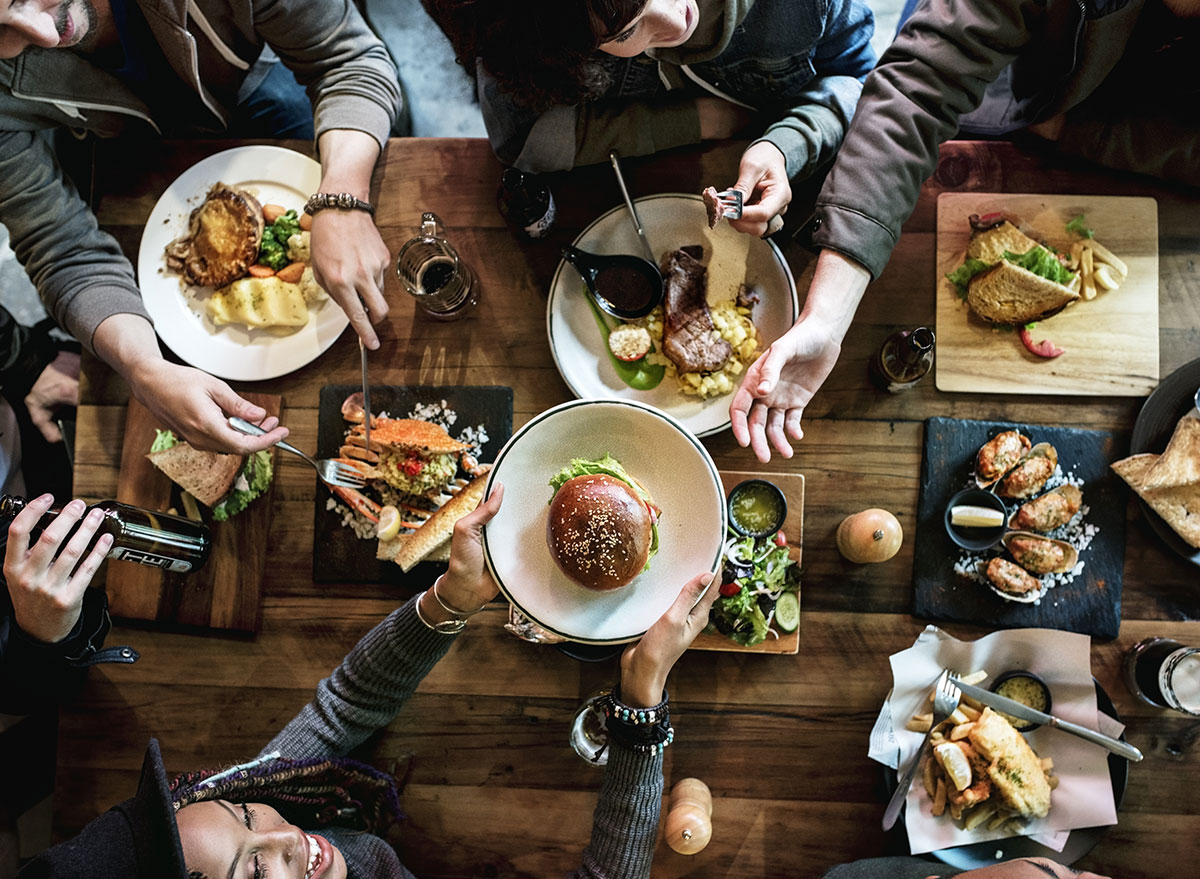
Heart disease is the leading cause of death in the U.S., accounting for as many as 1 in 4 deaths every year. Some of the risk factors of this disease include high blood pressure, high blood cholesterol, and smoking. Outside of family history, we know that the main culprits are diet and other lifestyle factors, but new research suggests that some individuals may be at higher risk simply because of the way their body responds to eating certain foods.
What did the study reveal?
After you eat a snack or a meal, you experience an increase in inflammation—it's a completely normal biological response. Prolonged periods of inflammation have been linked to chronic health conditions like heart disease and type 2 diabetes. Again, the severity of food-induced inflammation varies from person to person.
"Our study showed that food-induced inflammation is highly variable between individuals despite consuming the same meals. Even identical twins, persons who share all of their DNA, have very different levels of inflammation after eating the exact same meals—revealing that it isn't all pre-determined by our genes," Sarah Berry, Ph.D., and senior lecturer of nutrition sciences at King's College London, and lead author of the study tells Eat This, Not That!
Men, older individuals, and postmenopausal women tended to have higher inflammatory responses, the researchers found. Additionally, body fat levels were also associated with the level of food-induced inflammation experienced by an individual.

"People with higher body fat have higher fasting lipid levels and higher fat levels in their blood after eating high-fat meals," Berry says. "We have seen that the increase in inflammation after a meal is also very strongly associated with levels of fat in the blood. We also know that fat is very metabolically active tissue and therefore interacts with how we process our food after eating it."
How did the researchers find this out?
Researchers measured the levels of fat, sugar, and inflammatory markers in the blood of 1,002 healthy individuals who participated in the PREDICT research program after they ate set meals during specific windows of time.
Mike Bohl, MD, MPH, CPH, MWC, ELS, and member of the Eat This, Not That! Medical Expert Board, also noted that they looked at two inflammatory markers called IL-6 and GlycA.
"Interestingly, they did not see an association between fat and sugar levels and IL-6, which is considered one of the traditional inflammatory markers," he says. "However, they did see an association between fat and sugar levels and GlycA."
Even though the findings suggest that GlycA may better reflect inflammation than traditional inflammatory markers, the researchers clarify that there aren't currently any published studies on the postprandial (occurring after a meal) GlycA response.
Bohl also says to keep in mind that ZOE, the company that published this study, sells at-home tests that measure blood fat, sugar, and inflammation. Nonetheless, the findings are telling.
"A couple of things are likely clear from this research. First, both fat and sugar play a role in postprandial inflammation, so it makes sense to consider both of these in your diet—not just one or the other," Bohl says. "And second, individual people have different responses to meals. So just because a friend or family member's body responds to food in one way doesn't mean yours does, too."
How can you control food-induced inflammation?
Berry offers four strategies that may help you reduce the impact that inflammation has on your body after you eat.
Control unhealthy blood fat responses.
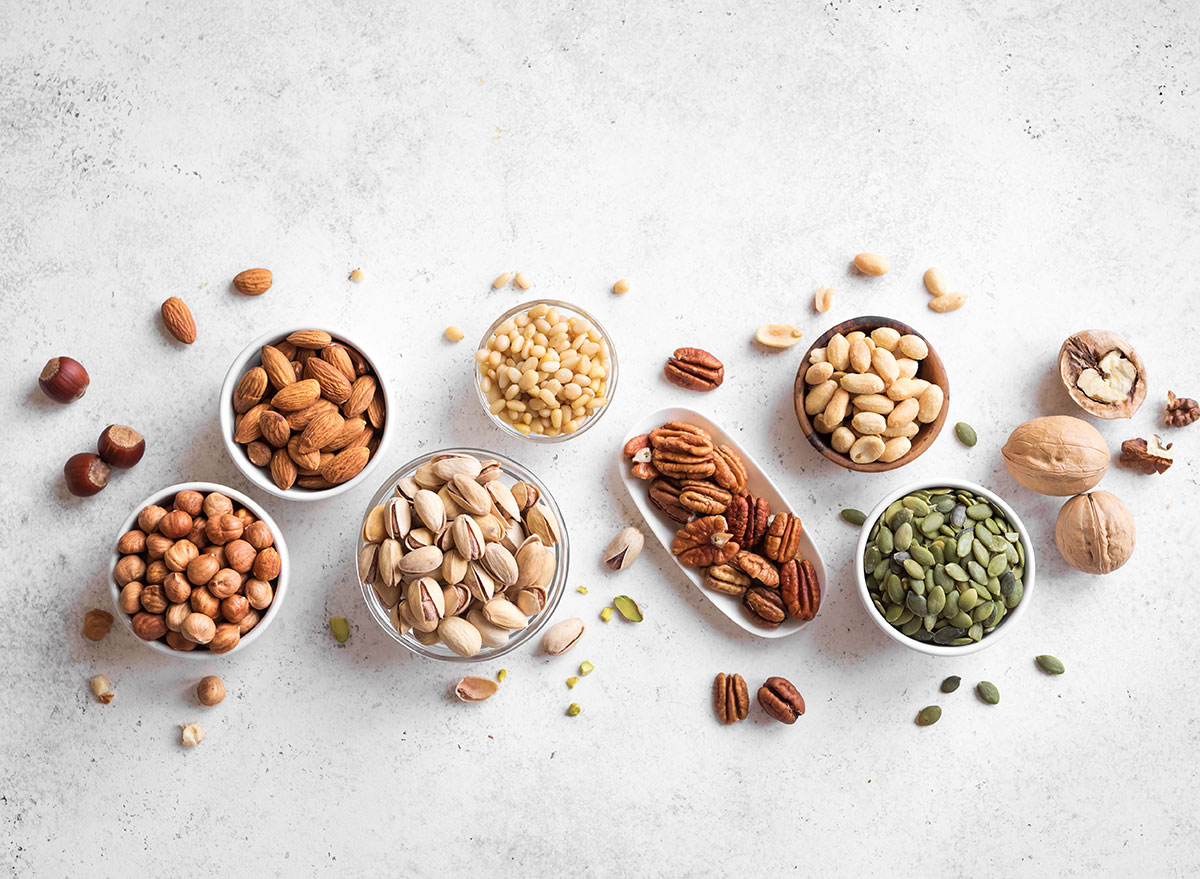
Berry says you can control unhealthy blood fat responses by choosing whole foods that are higher in fiber and lean protein; increasing your intake of healthy omega-3 fats from sources like fish, nuts, and seeds; and reducing your overall body fat.
Control unhealthy blood sugar responses.

Ditch candy and white bread. Berry says that you can control unhealthy blood sugar responses by choosing foods that contain complex carbohydrates and fiber—such as fruits, vegetables, and whole grains—and limiting sugary processed foods and sodas.
Reduce inflammation after eating.
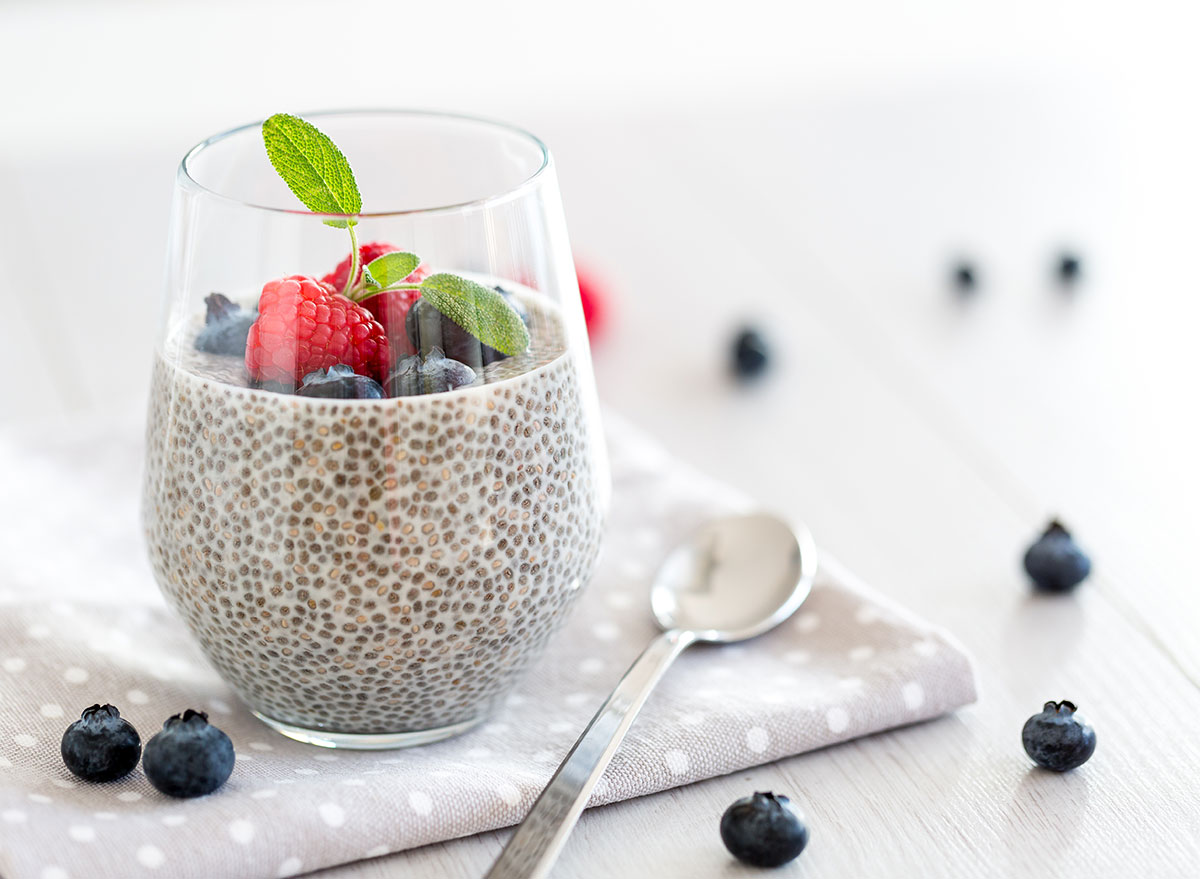
Choose foods that are high in "anti-inflammatory" bioactive molecules like polyphenols, which are found in an assortment of colorful fruits and vegetables, as well as other plant-based foods.
Understand your biology.
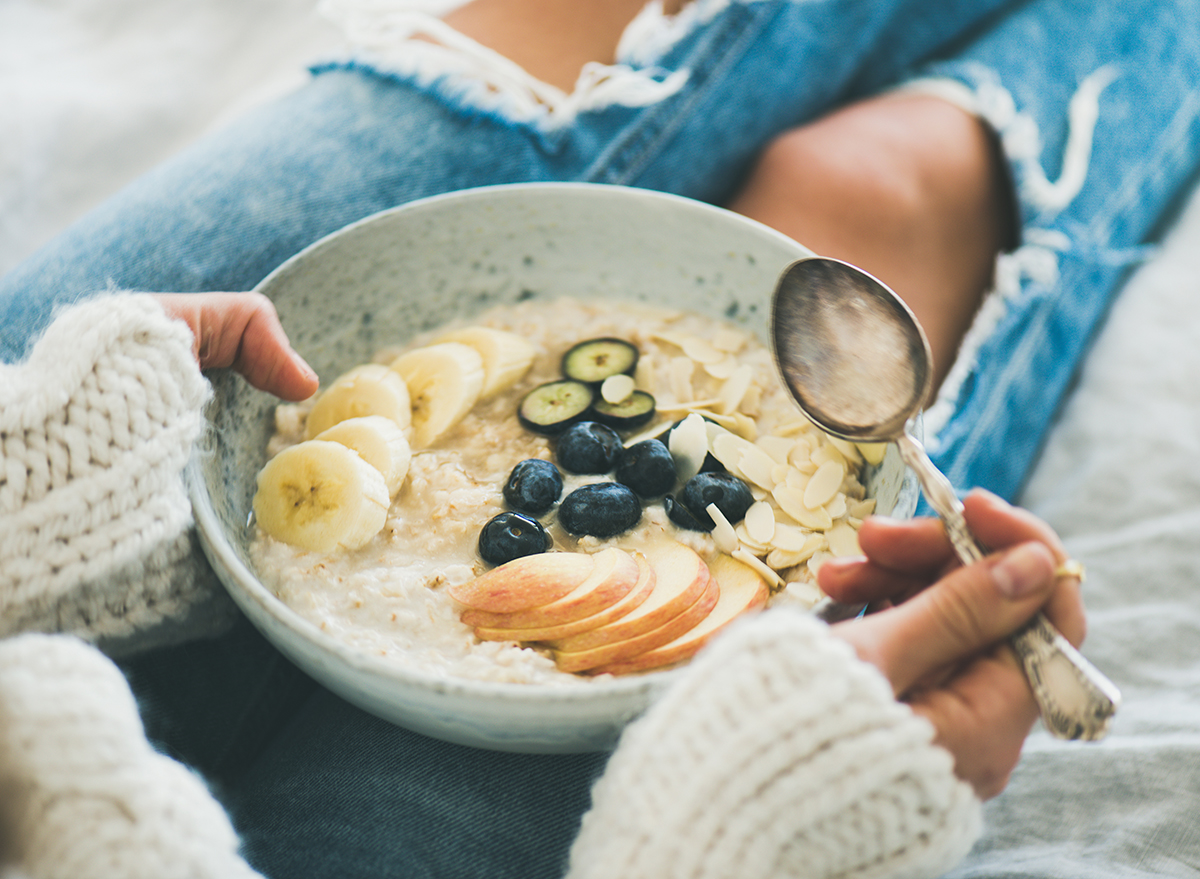
Choose foods that are less likely to cause unhealthy blood fat or sugar responses after eating, Berry says.
For more, be sure to check out These Are the Two Best Diets For Heart Health, According to Doctors.
